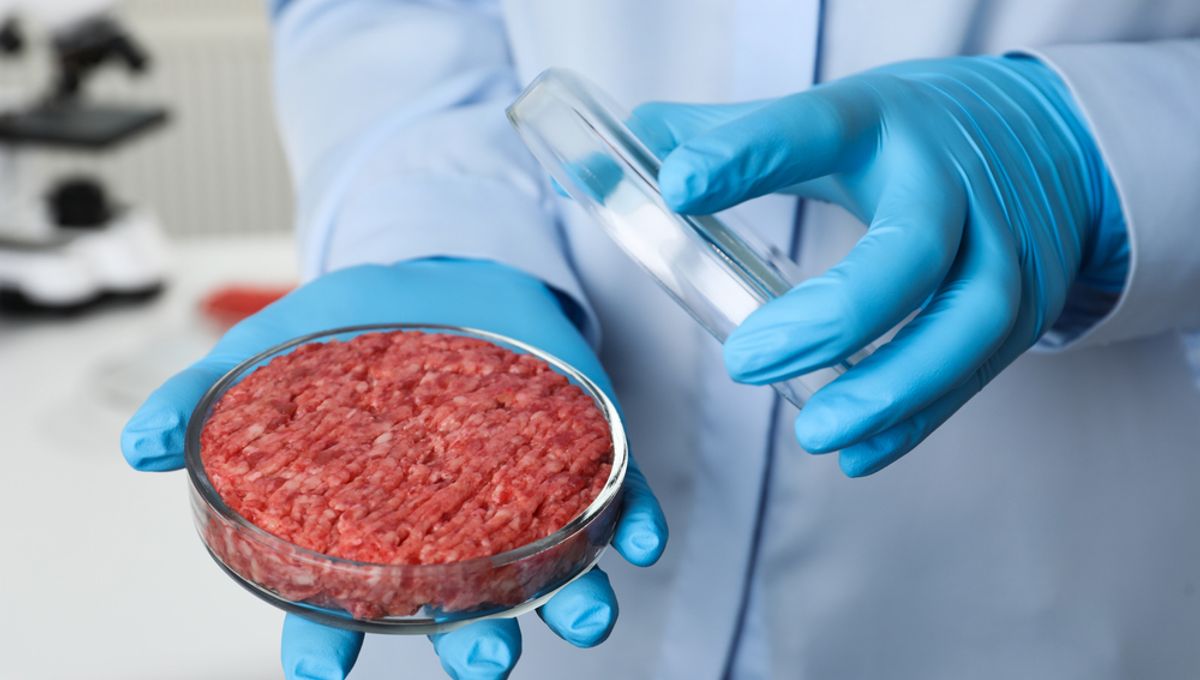
Growing burgers and steaks from cultured cells may be seen as the future of the meat industry, but a new analysis indicates that the mass-production of lab-grown meat using current technologies could be considerably worse for the environment than real beef. At present, animal cell-based meat (ACBM) is only produced at a very small scale and at an economic loss, although the as yet un-peer-reviewed study suggests that scaling up the process could release between four and 25 times more emissions than the global beef industry.
According to the study authors, “[billions of] investment dollars have specifically been allocated to [the ACBM] sector with the thesis that this product will be more environmentally friendly than beef.” However, while it’s true that lab-grown meat eliminates the land, water, and antibiotic requirements of cattle raising, the researchers explain that much of the interest in cultured meat has been driven by inaccurate analyses of carbon emissions.
The problem, they say, is that many of these reports have modeled the climate impact of ACBM using technologies that either don’t exist or are unlikely to work. For instance, one often-cited study estimated the carbon emissions of ACBM production using cyanobacteria hydrolysate as a feedstock for the cells. However, the researchers of this latest analysis explain that “this is not a technology or feedstock that is currently used for animal cell proliferation, nor is it one that is currently near feasibility.”
Other much-hyped reports have attempted to analyze the environmental impact of cultured meat produced with food-grade growing medium components. However, at present, the process is only possible using pharmaceutical-grade nutrient mixes, which are purified to a much higher level.
It’s this purification process that currently accounts for most of the emissions associated with ACBM production, the researchers say. In particular, the removal of endotoxins – which are released by bacteria in the environment – is absolutely essential for the creation of cultured meat, as even small amounts of these toxins in the growing medium can prevent cells from proliferating.
“Animal cell culture is traditionally done with growth medium components which have been refined to remove/reduce endotoxin,” write the study authors. “The use of these refinement methods contributes significantly to the economic and environmental costs associated with pharmaceutical products since they are both energy and resource intensive.”
Assuming the continued use of highly refined growing media, the researchers estimate that each kilogram of ACBM produces 246 to 1,508 kilograms (542 to 3,325 pounds) of carbon dioxide emissions. Based on these figures, they calculate that the global warming potential of cultured meat is between four and 25 times greater than that of retail beef.
Much of this impact is driven by the fossil fuel requirements associated with the purification of growth medium components. According to the study authors, this is between three and 17 times greater than the amount used to produce boneless beef.
Based on these calculations, the researchers conclude that “the environmental impact of near-term ACBM production is likely to be orders of magnitude higher than median beef production if a highly refined growth medium is utilized for ACBM production.”
Offering a solution, the authors suggest that the development of cell lines that can tolerate higher levels of endotoxins may reduce the need for energy intensive purification processes, thereby slashing the environmental impact of lab-grown meat.
The study is currently available as a preprint on bioRxiv.
Source Link: Lab-Grown Meat Up To 25 Times Worse For The Environment Than Beef